The 18th global consultation C-22 of the International Council for Evangelical Theological Education (ICETE) concluded in Izmir, Turkey after a week-long program focused on exploring practical next steps to collaborate among all forms of theological education worldwide for the sake of the Church, particularly in the area of pastoral training and leadership development. The record-setting event brought together some 500 participants from more than 80 countries representing 221 theological programs and resource providers from November 14 to 18, with the theme “formal and non-formal theological education: beyond dialogue.”
ICETE, which originally grew out of the World Evangelical Alliance (WEA) more than forty years ago, has developed into a global hub for evangelical theological education and today is member of the WEA’s Global Theology Department. This year’s C-22 consultation built on months of dialogue between formal and non-formal training providers, seeking to bridge a gap that has historically prevented a mutually beneficial, collaborative relationship between different approaches to training church leaders. Throughout the week, there has been a stronger recognition that the exponentially growing need for training can only be met together.
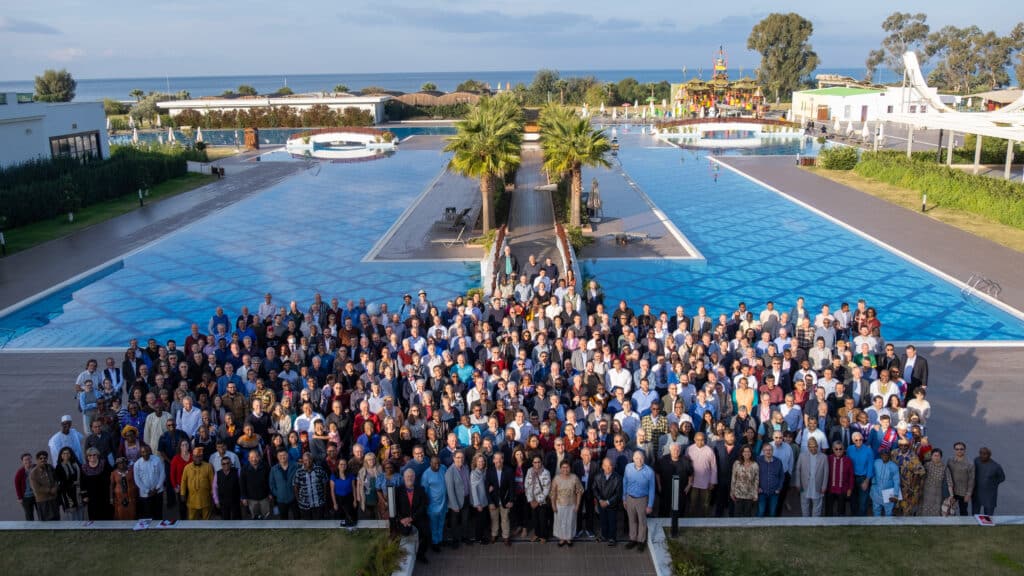
Key elements of the program were six tracks that addressed some of the practical questions that have surfaced through the earlier online consultation, including issues of quality assurance for non-formal training, use of technology for education, spiritual formation and preparing the future for the next generation, among others. Each of the track leaders presented their findings in the final session on Friday and outlined the next steps to move forward with practical solutions.
Dr. Michael A. Ortiz, International Director of ICETE, commented, “I believe that the Lord allowed us to launch a theme for the week on Monday night about mutuality, leaving our logos and egos behind, serving one another, and moving from inward postures to outward postures. Participants embraced the vision to begin to write a future story for theological education: a story marked by collaborative moves from talking to doing across all sectors, with the ultimate aim to strengthen the Church.”
“I believe this theme led people to think differently about their ministries and what the purpose of this week was about. The track leaders facilitated conversations that were very engaging, and now it is up to ICETE and our partners like the WEA and others to take this forward,” he added.
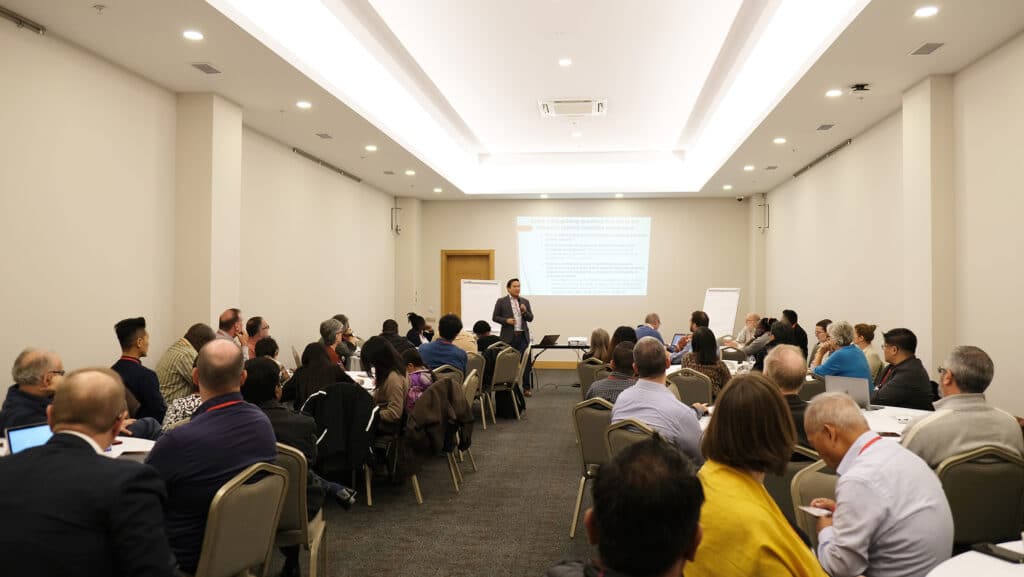
Most Importantly, Theological Education Should Serve the Needs of the Churches at Grassroots
The WEA was present through several leaders from its Global Theology and Global Witness departments, highlighting the importance of theological education for the future development of mission and church growth. WEA Secretary General Bp Dr Thomas Schirrmacher had pointed out in his video greeting that “the future of the Church is the future of its leaders, what we invest today into the education, training and maturing of emerging leaders will shape the Church in ten or twenty years from now. Therefore, this ICETE consultation represents our own future.”
Among the various groups represented were also WEA-affiliated ministries like Re-forma, which provides recognized certificates for non-formal training programs; Increase, a network of church-based training organizations; and the recently launched Galilean Movement that seeks to raise one million “harvest workers” annually to meet the need of exponentially growing churches in different parts of the world. They welcomed the opportunity for dialogue and collaboration while emphasizing that formal and non-formal programs each have their unique roles to play. Most important is that theological education meets the needs of the churches at grassroots, so that they are equipped to face the unique circumstances and context they serve in.
ICETE Highlights Ukrainian Christians as Exemplary Leaders of Christian Steadfastness
Half-way through the event, a special session was held to mourn the war in Ukraine with ICETE issuing a statement, in which it lamented the loss of one of its regional accrediting members, the Euro-Asia Accrediting Association (E-AAA). “On 11 May 2022, following the Russian invasion of Ukraine, the E-AAA Board convened and voted on its own dissolution,” it said, adding: “we grieve the loss of E-AAA, but also, we stand in solidarity with our sisters and brothers in theological education in Ukraine.”
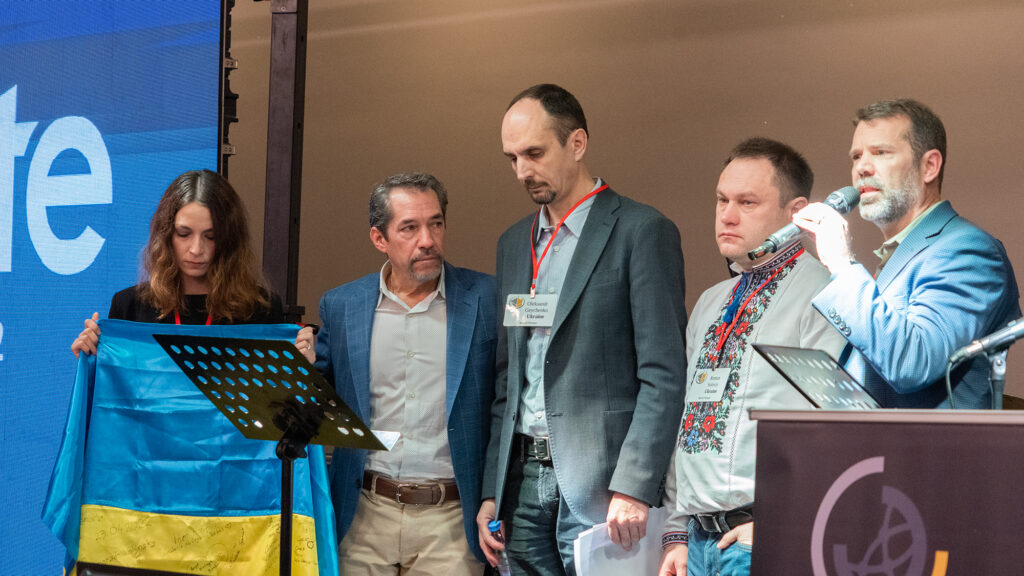
While acknowledging the suffering of Christians and theological schools who fell victim just as other parts of the Ukrainian population, the ICETE statement strongly emphasized that they are more than simply victims. “We do not merely see Ukrainian followers of Jesus as victims. Rather, we look to them as exemplary leaders of Christian steadfastness during unimaginable times,” the statement read, also pointing out the “tremendous efforts” of the Ukrainian delegation to join the consultation in Izmir. Despite the hardship, “those schools and their leaders, faculty, staff, and students continue to press forward through their consistent dependence on and strength from God.”
The Ukrainian delegation then read their own statement, which was followed by a time of prayer for restoration of lasting peace in the country.
A Measurable Legacy of C-22
As the consultation came to a close with the celebration of the Lord’s Supper, worship and prayer, Dr. Ortiz looked back at some of the hopes expressed during the opening night. Firstly, the prayer saying, “may history measure C-22 Izmir not by our numbers, but by our mutuality in one common aim – to strengthen Christ’s Church.” And secondly, ICETE’s hope that church and training leaders twelve years from now would look back and testify that “C-22 Izmir was a catalytic event in the history of the Church. A mutuality was birthed that accelerated collaboration in the whole of theological education worldwide. Now in 2034, the Church is stronger and on mission for Christ like never before because of that one week in November of 2022 in Izmir.”
The feedback of participants was overwhelmingly positive, with many pointing out that ICETE is the only platform that exists to gather all players in theological education globally. However, efforts will continue in the coming months to ensure that the legacy of C-22 will be measurable in practical and stronger collaboration between formal and non-formal theological education, and a significant increase in effective leadership training for the multifaceted needs of the Church worldwide.
For high resolution photos and press information for the event, visit: https://e1.pcloud.link/publink/show?code=kZ0QqQZU6bOCFsCGnf0N3Q54Ir6dkCRlPPV
See also:
- Theological Education Conference Kicks Off with 500 Participants from 80+ Countries, Seeking Greater Collaboration to Support the Global Church
- Global Theological Consultation to Unite Formal and Non-formal Theological Education to More Effectively Train Church Leaders Worldwide
- Full ICETE Statement on Situation in Ukraine
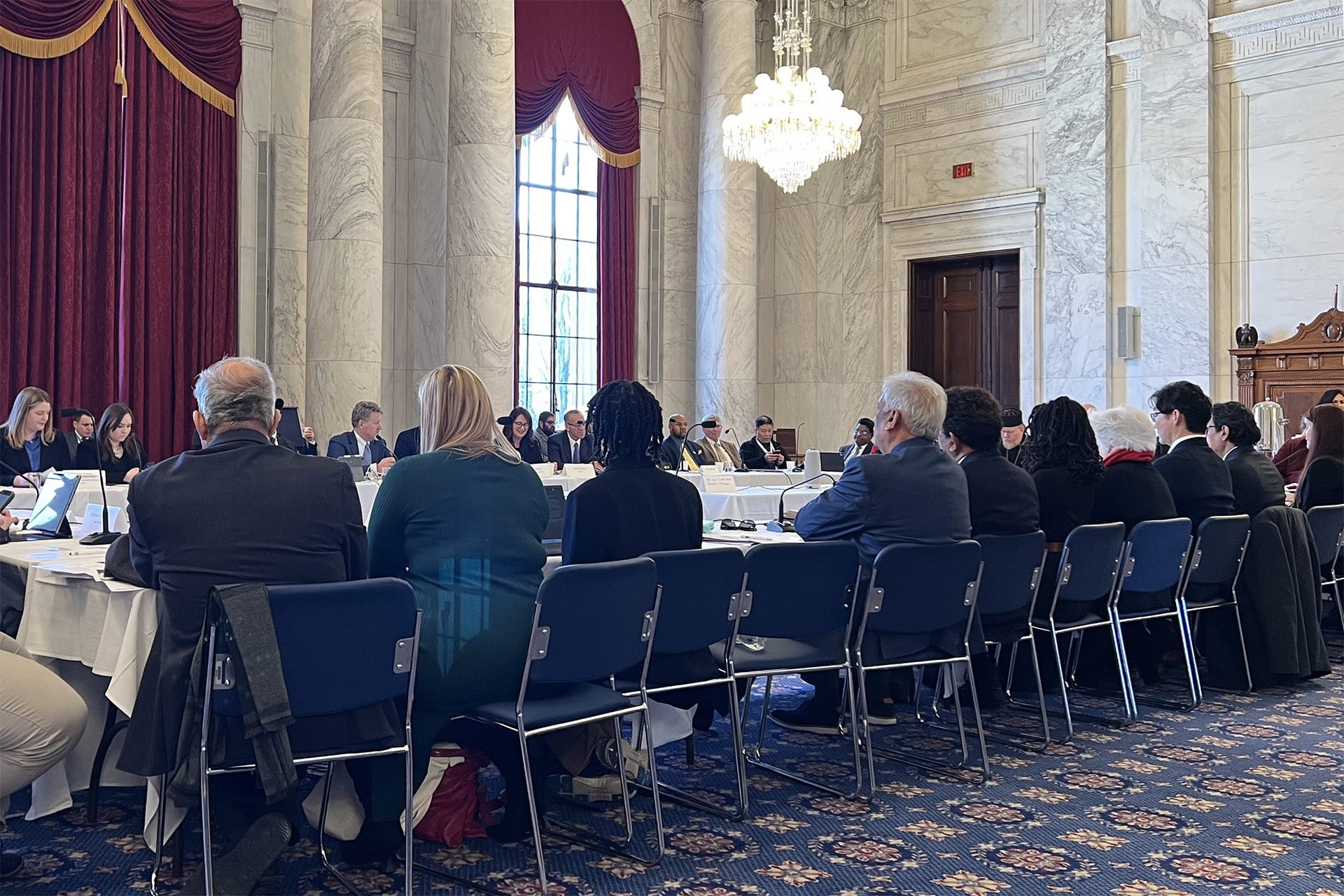

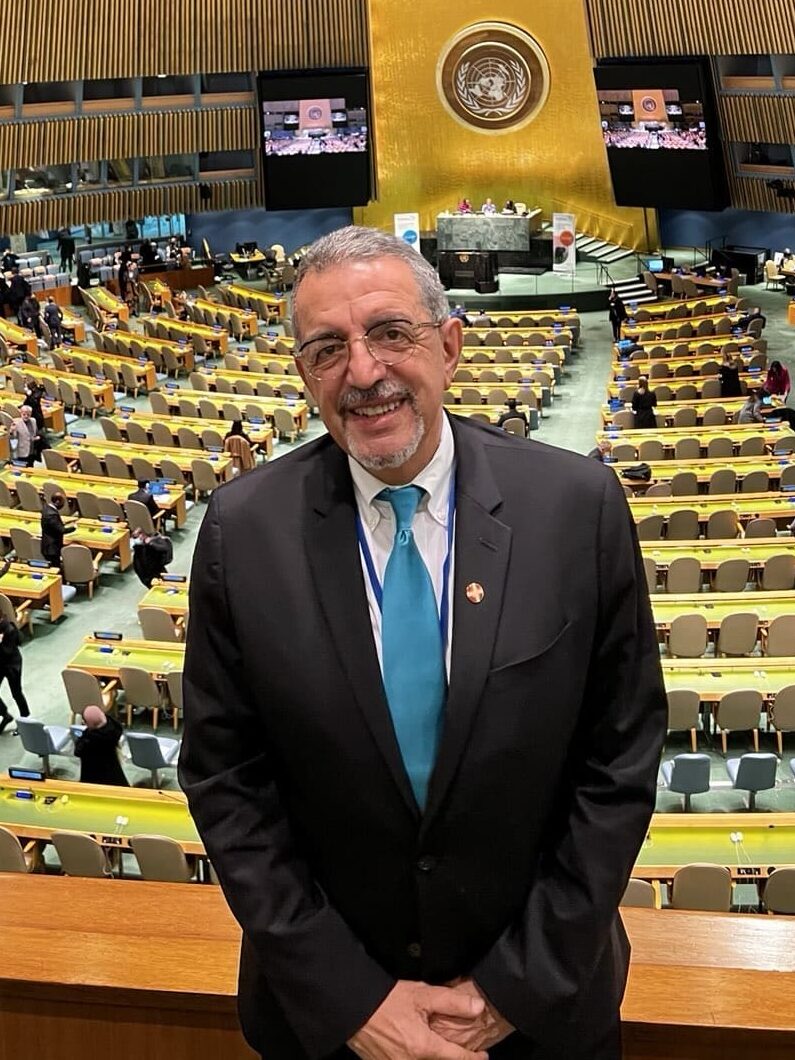
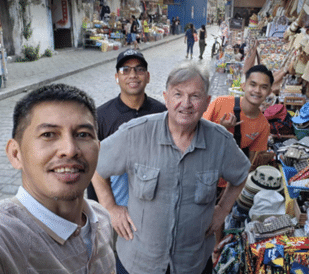

Stay Connected